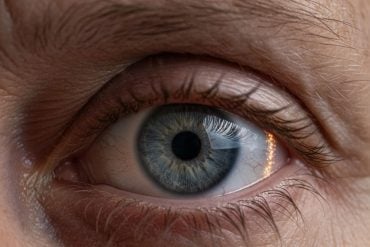Summary: A large population-based study suggests that doxycycline, a common antibiotic, may reduce the risk of schizophrenia when prescribed to adolescents receiving mental health care. Researchers analyzed data from more than 56,000 young patients and found that those who took doxycycline had a 30–35% lower chance of developing schizophrenia later in life.
The effect is thought to stem from doxycycline’s ability to calm brain inflammation and regulate synaptic pruning, key factors in brain development. Although the results need to be validated through clinical trials, the findings highlight a potential new pathway for preventing severe psychiatric disorders.
Key Facts
- Protective Link: Adolescents prescribed doxycycline were 30–35% less likely to develop schizophrenia as adults.
- Inflammation Target: The antibiotic may protect the brain by reducing inflammation and moderating neural pruning.
- Preventive Potential: Results open the door to repurposing doxycycline as an early intervention for high-risk youth.
Source: University of Edinburgh
A commonly prescribed antibiotic could help reduce the risk of some young people developing schizophrenia, new research suggests.
Experts found that patients of adolescent mental health services who were treated with the antibiotic doxycycline were significantly less likely to go on to develop schizophrenia in adulthood compared with patients treated with other antibiotics.
Experts say the findings highlight the potential to repurpose an existing, widely used medication as a preventive intervention for severe mental illness.
Schizophrenia is a severe mental disorder that typically emerges in early adulthood and is often associated with hallucinations and delusional beliefs.
To better understand potential ways of preventing the condition, researchers from the University of Edinburgh, in collaboration with the University of Oulu and University College Dublin, applied advanced statistical modelling to large-scale healthcare register data from Finland.
The team analysed data from more than 56,000 adolescents attending mental health services who had been prescribed antibiotics. They found that those treated with doxycycline had a 30–35 per cent lower risk of developing schizophrenia than peers who received other antibiotics.
The researchers hypothesised that the protective effect could be linked to doxycycline’s impact on inflammation and brain development.
Doxycycline is a broad-spectrum antibiotic commonly used to treat infections and acne. Previous studies suggest it can reduce inflammation in brain cells and influence synaptic pruning – a natural process where the brain refines its neural connections. Excessive pruning has been associated with the development of schizophrenia.
Further analyses showed that the lower risk wasn’t simply because the young people may have been treated for acne rather than having infections, and was unlikely to be explained by other hidden differences between the groups.
Professor Ian Kelleher, study lead and Professor of Child and Adolescent Psychiatry at the University of Edinburgh, said: “As many as half of the people who develop schizophrenia had previously attended child and adolescent mental health services for other mental health problems.
“At present, though, we don’t have any interventions that are known to reduce the risk of going on to develop schizophrenia in these young people. That makes these findings exciting.
“Because the study was observational in nature and not a randomised controlled trial, it means we can’t draw firm conclusions on causality, but this is an important signal to further investigate the protective effect of doxycycline and other anti-inflammatory treatments in adolescent psychiatry patients as a way to potentially reduce the risk of developing severe mental illness in adulthood.”
Key Questions Answered:
A: Adolescents treated with doxycycline were 30–35% less likely to develop schizophrenia in adulthood compared to peers who received other antibiotics.
A: The drug appears to reduce brain inflammation and influence synaptic pruning—the neural refinement process that, when excessive, has been linked to schizophrenia.
A: While the results are observational, they suggest that widely available anti-inflammatory medications like doxycycline could one day help prevent severe mental illness if confirmed in clinical trials.
About this psychopharmacology and schizophrenia research news
Author: Guy Atkinson
Source: University of Edinburgh
Contact: Guy Atkinson – University of Edinburgh
Image: The image is credited to Neuroscience News
Original Research: Closed access.
“Doxycycline Use in Adolescent Psychiatric Patients and Risk of Schizophrenia: An Emulated Target Trial” by Ian Kelleher et al. American Journal of Psychiatry
Abstract
Doxycycline Use in Adolescent Psychiatric Patients and Risk of Schizophrenia: An Emulated Target Trial
Objective:
As many as half of individuals who develop psychosis had attended child and adolescent psychiatric services at some stage in childhood, highlighting substantial opportunities for prevention within these services if an effective preventive intervention were identified.
The authors hypothesized that adolescent psychiatric patients exposed to doxycycline, an antibiotic with putative neuroprotective properties, would have a lower risk of developing schizophrenia.
Methods:
This was an emulated target trial using nationwide Finnish health register data on all individuals born between 1987 and 1997 who attended adolescent psychiatric services between ages 13 and 18 and had used any antibiotics. Individuals were followed from first dispensed antibiotic prescription up to age 30. The main outcome was recorded schizophrenia diagnosis.
The g-formula was used to estimate schizophrenia risk across doxycycline exposure levels (cumulative dose doxycycline use: no doxycycline use; low use, <1,499 mg; medium use, 1,500–2,999 mg; high use, ≥3,000 mg) during different follow-up periods.
Results:
A total of 56,395 individuals had attended adolescent psychiatric services and had used antibiotics; of these, 16,189 (28.7%) had used doxycycline. The risk of schizophrenia after 10 years of follow-up was 2.1% (95% CI=1.9, 2.3) for individuals who had used non-doxycycline antibiotics.
In comparison, the risk of schizophrenia at 10 years was significantly lower in adolescent psychiatric patients treated with doxycycline (low cumulative dose: 1.4%, risk ratio=0.70, 95% CI=0.48, 0.85; medium cumulative dose: 1.4%, risk ratio=0.65, 95% CI=0.25, 1.04; high cumulative dose: 1.5%, risk ratio=0.70, 95% CI=0.43, 0.97).
Conclusions:
These findings raise the tentative but exciting possibility that doxycycline treatment may reduce schizophrenia risk in adolescent psychiatric patients.








